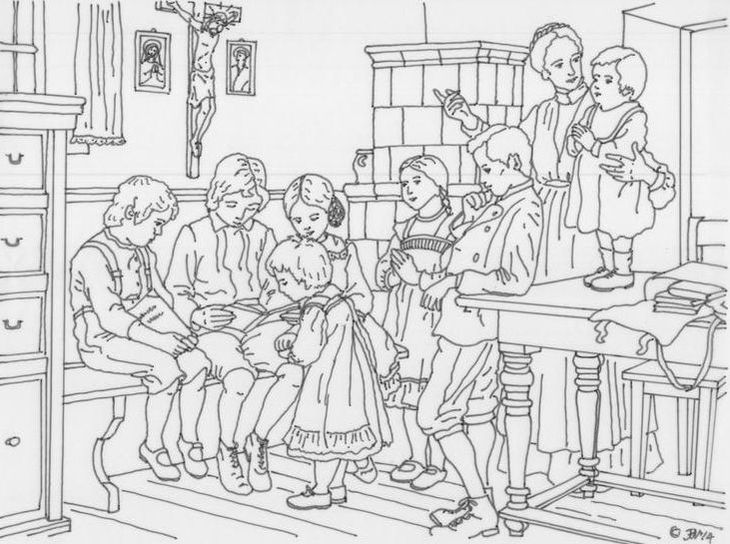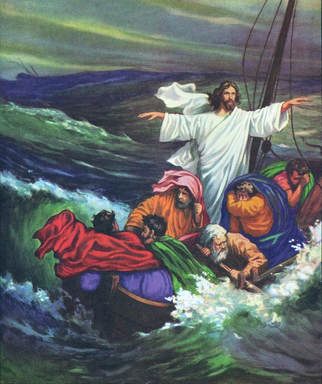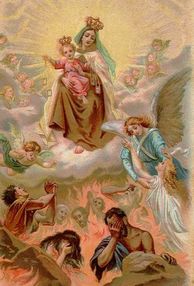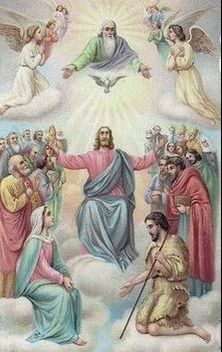
Parents, it is God who has given you your children. He created them. By His almighty will He formed their bodies out of the substance of earth. He formed all the limbs, organs and senses of their bodies, their hands and feet, their hearts and brains, their eyes and ears. He breathed into their bodies an immortal soul. Every parent must admit the truth of what the Machabean mother said to her sons: "I know not how you were formed; for I neither gave you breath, nor soul, nor life; neither did I frame the limbs of every one of you. But the Creator of the world, who formed the nativity of man, and who found out the origin of all, He will restore to you again in His mercy both breath and life, as now you despise yourselves for the sake of His laws." (II. Mach 7, 22-23).
Your children are therefore God's property, not yours. He has merely loaned them to you; and it is His will that you should educate them in such a way that, when He calls them back out of this world, He may keep them with Him in heaven forever. Yes, the time will come when God will demand His property - your children - back from you.
One or the other of your children may go into eternity before you, others of them may follow you. In either case, when you yourselves appear before God after death to be judged, He will ask you the question: "What have you done with My property, the children I gave you?" How will you feel and what will you say, if even one of your children through your fault is excluded by the justice of God from the unspeakable joys of eternal life in heaven?
Educating the children for a successful career in this world is not the most important part of the task that parents have to fulfill. Some parents think it is; at least they act as if they believed that to be their first duty. If God had created man to live forever in this world, then it might be all right for parents to educate their children in such a way that they will be able to enjoy the greatest possible earthly happiness during their never-ending life. But God created man that he might live only a short while here on earth. At the appointed time death comes and takes man out of this world beyond the confines of the grave. There man shall live forever, and it is God's will that the secular education of the children be not neglected; but it is also His will that the religious education of the children be given the preference as being absolutely necessary, and therefore vastly more important than the other.
How true, then, are the words of the catechism: "The first and most sacred duty of parents is to bring up their children for God and eternal life!"
Source: The BeeHive by the Rev. A.M. Grussi, December 18, 1910






 RSS Feed
RSS Feed